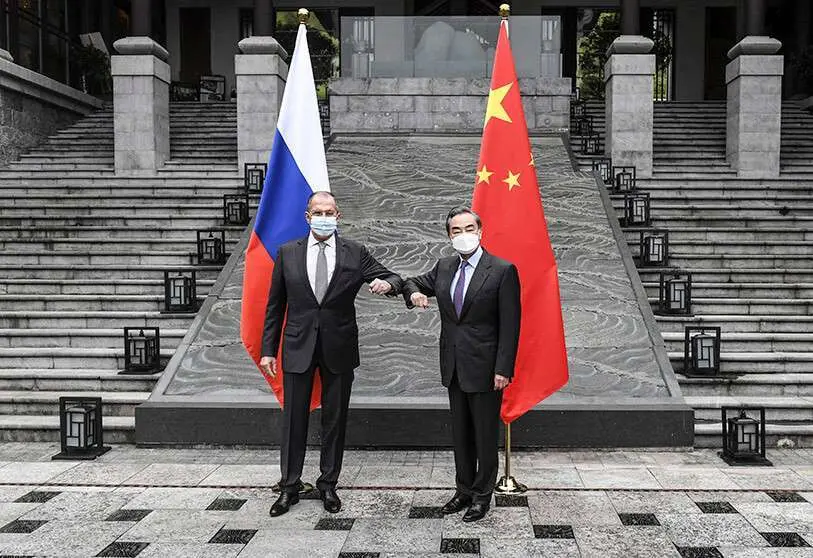Warning signs of a new Cold War

The European Union's sanctions against China, immediately backed by the United States and the United Kingdom, and Beijing's immediate retaliation indicate that Euro-American relations with the Asian giant are not going through the best of times. Parallel to this, if China and Russia strengthen their relations with the bloc they still call the West, we could be witnessing the first signs of a new Cold War.
It is clear that Beijing does not accept American primacy and is seeking to burn stages on the road to its destiny as a world superpower. The strengthening of Sino-Russian ties, staged by the visit to Beijing of Russia's astute Foreign Minister Sergei Lavrov, confirms the desire of both sides to shake off dependence, or at least American tutelage in areas such as technology and the fundamental issue of admitting the dollar as the world's reference currency. Lavrov himself, who has already clearly indicated to EU diplomacy chief Josep Borrell his lack of interest in maintaining the best relations, has once again reaffirmed in Beijing that he prefers bilateral ties rather than institutional ones with the EU.
No less important is the joint call by Lavrov and his Chinese colleague Wang Yi for a summit conference of the permanent members of the UN Security Council, the purpose of which would be to update international balances. Lavrov did not mince his words in urging such an event: "We noted the destructive nature of U.S. intentions, relying on the military-political alliances of the Cold War era".
The two leaders were thus responding to US President Joe Biden's alleged intentions to convene a summit of countries that he considers to be true democracies. An approach that would leave out the two giants, Russia and China, and which would foreseeably exclude countries included on the list of terrorist states and others with no obvious empathy for the United States.
And what is the EU's role in this hypothetical new scenario? For the time being, it is to be commended that in imposing sanctions on China, it did not this time lag behind Washington, which, by supporting Brussels' initiative, is making an important gesture of reconciliation after the distancing imposed by Donald Trump. Moreover, the EU is reinforcing its firm commitment to human rights, since the reason for the sanctions against Beijing is the violation of human rights against the Uighur minority in Xinjiang province. The immediate response from Beijing, which included a large group of MEPs on its blacklist, was to be expected. Xi Jinping, the powerful Chinese president, did not want to go any further, however, and refrained, for example, from denouncing the investment treaty, so painstakingly concluded with the EU and criticised by the US.
On the other hand, the UK's unexpected bid to increase its arsenal of nuclear warheads, and US Secretary of State Antony Blinken's endorsement of a NATO that had not quite redefined its role and new objectives, have been echoed by both China and Russia. The former is continuing its escalating rearmament, including its foray into new space weapons. As for the Russians, their latest deployment of submarines and aircraft in the Black Sea, in response to NATO manoeuvres to defend an alleged invasion of Romanian sovereignty, is also a sign that they will not be easily intimidated.
Needless to say, both these war games and those taking place in the vicinity of the Baltic states could be the pretext for activating its army of hackers, the same ones that could be behind the attacks on numerous Spanish public bodies and private companies.
In this reconformation of old alliances, the new European and American tone towards Recep Tayyip Erdogan's Turkey does not go unnoticed either. The EU is preparing a new disbursement for Ankara to renew its reception of the more than 4.5 million refugees on its territory; the United States, through Blinken's mouth, has announced the great interest of both Washington and NATO itself in Turkey continuing its traditional anchoring to the Atlantic Alliance.
All in all, if all these events do not paint a picture of an imminent Cold War climate, one would have to admit that it looks a lot like one.

